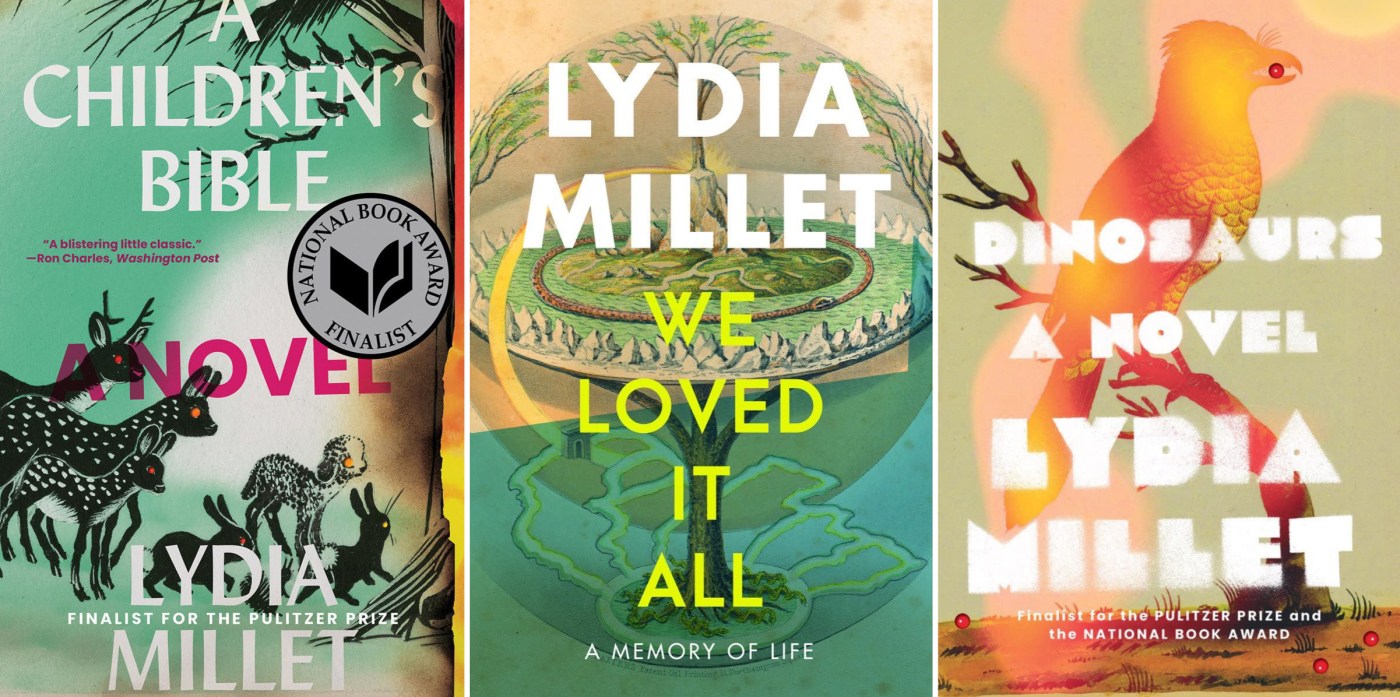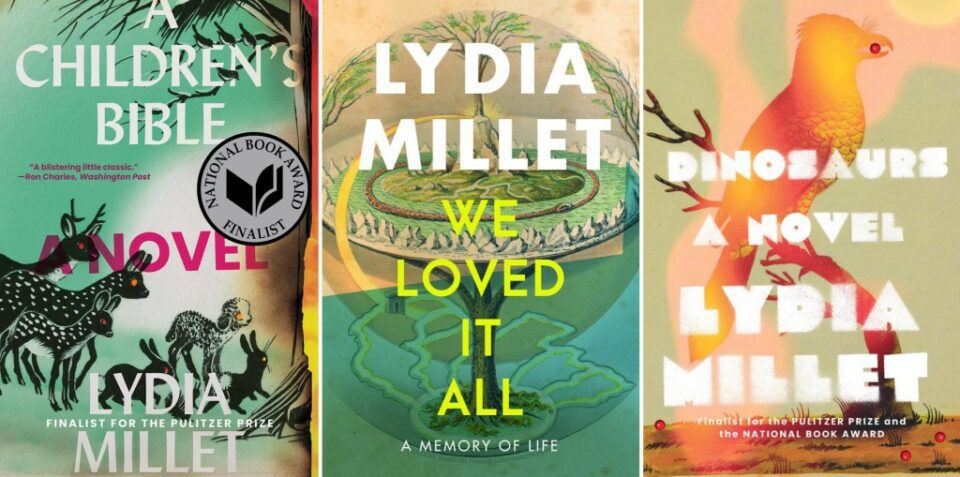
When you read a work of fiction, you’re experiencing the byproduct of someone else’s mind (hopefully) working at the height of their creative powers.
This sensation can feel a little mystical. I’m sure I’m not the only one who has read a book while simultaneously wondering where everything in the book could be coming from.
It’s been a frequent sensation for me when reading the novels and stories of Lydia Millet, a writer whom I’ve been reading for nearly 25 years, starting with her strange, satire from 1999 that now seems like it comes from a different world, “George Bush, Dark Prince of Love” in which the first Bush presidency is treated as a kind of erotica by the rather unhinged narrator.
Millet’s books often traffic in humor, but other than that, you never quite know what you’re going to get. Her Pulitzer Prize finalist story collection, “Love in Infant Monkeys” is a series of fantastical tales about celebrity encounters with non-human species. “Sweet Lamb of Heaven” is a chilling political thriller mixed with horror. “The Children’s Bible” takes on an almost mythic cast in telling the story of a group of children stranded by a storm on a vacation island, left to fend for themselves because the adults are so feckless. “Dinosaurs” is the story of a man who decides to walk nearly across the country and once he does so, he rebuilds his life while living next door to a family with glass walls in their house. Somehow it manages to be both heartwarming and menacing.
The bounds of Millet’s imagination seem limitless.
Millet has now gifted us with a new book from her unique and lively mind, a book of essays this time, “We Loved It All.” The book is significantly informed by Millet’s work at her day job at the Center for Biological Diversity, a nonprofit dedicated to preserving as much of the Earth and its species as possible.
“We Love It All” is an exploration of the world’s creatures, both animal and human, and it is a beautiful and sad book that is also profoundly uplifting and heartening. Each chapter is largely unstructured, jumping off from a thought — like how we appropriate animals for our commercial spokespeople — and allowing that thought to unfold in search of insights. Those insights come constantly.
Much of what Millet catalogs is what we have lost from the world, the creatures that used to roam the Earth but are now extinguished, often through the carelessness of man, as with the auk, a giant flightless bird. Millet writes about how the men tasked with capturing species for a collector came upon a breeding pair who looked, according to the men, “quite dignified.”
Millet writes “Despite the dignity, two of the men strangled the nesting pair, and a third smashed their egg under a boot.”
Millet mixes a clear cold gaze with great warmth without descending into sentiment or sentimentality. This makes the power of her observations of man’s swath of destruction of the natural world and our failure to appreciate its wonders all the more potent.
Toward the end of the book, Millet likens the writing she does now to a “form of prayer.”
“What could be more honest than a prayer?” she asks. “What’s more heartfelt than begging?”
She continues, “The truest language of all is a plea for mercy. You can pray to God, of course. But you can also pray to other people.”
Here then is the hope, the reminder along with the book’s title that in the end, we can choose each other, and in that choice, we choose love.
John Warner is the author of “Why They Can’t Write: Killing the Five-Paragraph Essay and Other Necessities.”
Book recommendations from the Biblioracle
John Warner tells you what to read based on the last five books you’ve read.
1. “We Are Too Many” by Hannah Pittard
2. “Burn It Down: Power, Complicity and a Call for Change in Hollywood” by Maureen Ryan
3. “The Best Minds: A Story of Friendship, Madness, and the Tragedy of Good Intentions” by Jonathan Rosen
4. “My Search for Warren Harding” by Robert Plunket
5. “Hits, Flops, and Other Illusions: My Fortysomething Years in Hollywood” by Ed Zwick
— Sean G., Highwood
For Sean, I’m going to recommend a classic work of Hollywood fiction to go with those nonfiction books he’s been reading, “The Player” by Michael Tolkin.
1. “Harold” by Steven Wright
2. “Knife” by Salman Rushdie
3. “The Lazarus Project” by Aleksandar Hemon
4. “Open Secrets” by Alice Munro
5. “How Bluegrass Music Destroyed My Life” by John Fahey
— Robert M., Chicago
Something tells me that the invention and wit of Kiese Laymon’s “Long Division” is a good match for Robert.
1. “The Hour I First Believed” by Wally Lamb
2. “Lady Tan’s Circle of Women” by Lisa See
3. “The Five Wishes of Mr. Murray McBride” by Joe Siple
4. “Homegoing” by Yaa Gyasi
5. “The Women” by Kristin Hannah
— Leanne A., Park Ridge
“Olive Kitteridge” by Elizabeth Strout is not for the faint of heart, but it delivers such a satisfying emotional blow, that I have to recommend it to Leanne.
Get a reading from the Biblioracle
Send a list of the last five books you’ve read and your hometown to [email protected].
John Warner , 2024-05-11 12:00:37
Source link


